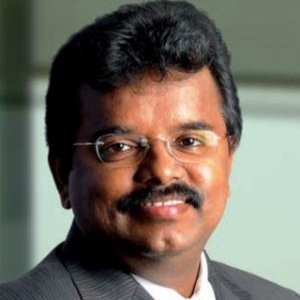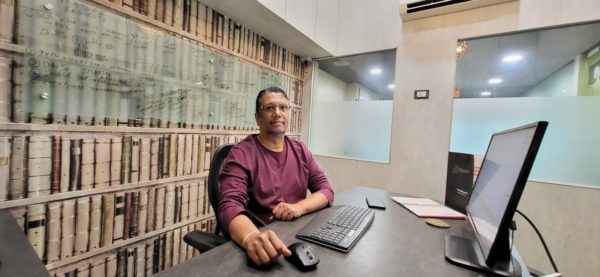– By Tanisha Saxena
Over the past decade, the pharmaceutical and FMCG sectors have experienced a profound shift, transitioning from traditional paperwork to sophisticated digital systems. This evolution has redefined operational efficiency and transparency across the value chain. At the forefront of this transformation is Marg ERP, a technology-driven enterprise offering tailored software solutions for small and medium-sized enterprises (SMEs). Its comprehensive suite addresses core business functions, including inventory management, accounting, billing, payroll, taxation (notably GST compliance), and supply chain management.
In an exclusive conversation with CMR, Thakur Anup Singh, co-founder of Marg ERP, reflected on the company’s journey and its vision for the future.
“Since 2000, Marg ERP has been a trusted partner for businesses aiming to optimize operations through innovative solutions,” Singh remarked. “With the launch of Marg Cloud, companies can now manage their data with unparalleled ease and flexibility, accessing it anytime, anywhere. Designed with a focus on efficiency and security, Marg Cloud caters to the dynamic needs of modern businesses.”
Marg Cloud’s key features include real-time data synchronization, robust security protocols like Azure encryption, and automated daily backups for consistent data reliability. “The platform not only simplifies GST billing and filing but also offers features like sending invoices directly via WhatsApp,” Singh elaborated. “At a starting price of ₹48 per day and with 24/7 customer support, Marg Cloud delivers affordability, functionality, and peace of mind.”
A Journey of Innovation
Marg ERP began in 2000 with a mission to digitize the operations of roughly 3,500 manufacturing companies. Over time, its reach expanded to encompass pharmaceutical distributors and FMCG sectors, becoming an essential tool for businesses seeking streamlined processes.
“In the early days, inventory and accounting management were significant challenges for distribution companies,” Singh recalled. “We developed the first integrated software that seamlessly handled stock management and taxation—a revolutionary step at the time.”
Despite the rapid adoption of technology in India, Singh acknowledged that cloud-based systems remain relatively new, with many businesses still reliant on desktop-based software.
Driving Digital Healthcare: ABHA Integration
Marg ERP has also ventured into India’s healthcare transformation through its collaboration with the Ayushman Bharat Digital Mission. By enabling chemists to earn ₹20 for every ABHA-based bill generated, the platform supports streamlined billing and patient history integration.
“Through ABHA registration, chemists can enhance operational efficiency and play a pivotal role in advancing digital healthcare accessibility in India,” Singh explained.
This initiative not only offers chemists an additional income stream but also places them at the forefront of India’s healthcare digitization.
Redefining Banking for SMEs
Marg ERP’s integrated banking features further simplify financial management for businesses. With real-time updates, automatic ledger entries, and seamless bank reconciliation, users can manage payments and monitor account balances with minimal effort. For ICICI Bank users, added functionalities like integrated cheque-writing and access to working capital loans streamline the banking experience even further.
“Marg ERP is more than just banking,” Singh emphasized. “It combines inventory, accounting, billing, purchase management, and online payment solutions, making it an all-in-one platform for businesses of any size.”
As India’s SMEs navigate an increasingly digital future, Marg ERP stands as a beacon of innovation, helping businesses adapt, grow, and thrive in a rapidly evolving landscape.
According to Singh, In India, businesses operate with remarkable diversity and a uniquely intricate working style. Unlike the more straightforward systems often seen in the West, our approach includes complex billing methods and a deeply ingrained discounting culture. If we could successfully transition these manual systems into fully computerized operations, it would serve as a testament to our adaptability and innovation—proving that we are capable of achieving anything on a global scale.
Transforming Traditional Practices
One of Marg ERP’s defining strengths lies in its robust inventory management system, which has set it apart from legacy software like Tally. Singh pointed out that Marg ERP’s software is now integral to the operations of a diverse range of businesses, from newspaper vendors and milk distributors to garment retailers and restaurants.
“Our ability to digitize deeply ingrained manual processes in businesses—processes shaped by India’s unique working style and discounting culture—demonstrates the adaptability and innovation we bring to the table,” Singh said.
Building on this foundation, Marg ERP has introduced a suite of advanced features: invoices sent via WhatsApp, automated SMS payment reminders, and real-time stock updates that help businesses stay ahead of supply chain demands.
The Future of SMEs
Digital ordering is another transformative feature that has redefined operations. Sales representatives, armed with real-time information, can now manage transactions and logistics with remarkable efficiency.
“The result is a system that eliminates friction and enables businesses to operate with precision,” Singh observed.
As India’s SMEs navigate an increasingly digital future, Marg ERP is leading the charge, proving that even the most complex traditional systems can evolve into efficient, technology-driven operations. For businesses looking to thrive in this new era, Marg ERP offers not just tools but a partnership in innovation and growth.
“India’s diversity and intricate working style make our transformation journey unique,” Singh concluded. “If we can digitize these systems, we’re proving not just our capability but our potential to lead on a global scale.”













